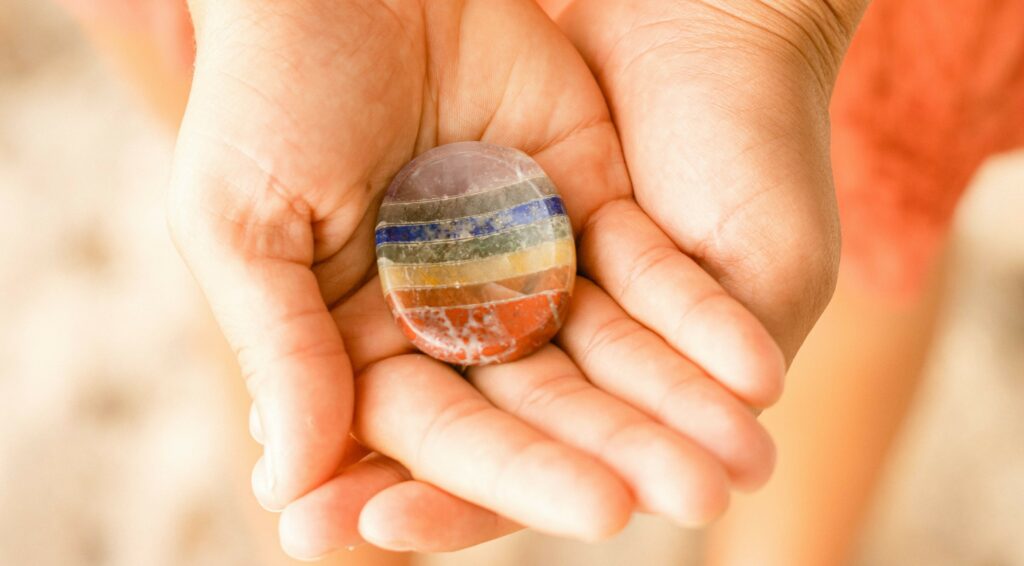Graduating from high school is one of the biggest milestones in life. But for teenagers who are still grieving the loss of a loved one, graduation can be incredibly difficult to handle. They want their person — a deceased parent or sibling — to be part of that occasion more than anything, but this isn’t possible. How can they honor the memory of the person while taking care of themselves?
It’s normal for a teen to have overwhelming emotions, including sadness, anger, frustration, guilt, and loneliness, and also feelings of excitement and a sense of pride for graduating. These contradicting emotions can happen all at the same time, especially when their grief is new.
As the child’s remaining caregiver (and/or mentor), you play an important role in helping them celebrate their achievement while honoring the memory of their loved one who has died. Their graduation can be a meaningful one with your support and some coping strategies. Below are strategies to keep in mind.
The Days Leading Up to Graduation…
Be available to discuss their feelings.
A teenager could be dealing with the anxiety of graduating without their loved one and may not express their worries out of fear that you won’t understand them. Many who grieve want to appear “normal.” But the only way for them to deal with it healthily is by allowing themselves to feel the loss and talk about it. The key is not to force them to have a conversation. Instead, simply ask them how they are and let them know that you’re there to listen in case they want to talk.

Help them get a good night’s sleep.
A good night’s sleep goes a long way in reducing anxiety and stress, plus it improves their mood and allows them to have a more positive outlook during graduation. For a teen who’s having trouble sleeping or staying asleep (a reaction towards grief), help them follow good sleep strategies if possible, such as avoiding caffeine after 4:00 pm, sticking to the same bedtime each night, and quieting their mind through meditation and deep breathing. That said, know if they don’t get a good night’s sleep, that’s okay too. It’s a big day, and it’s normal to not get as many hours of sleep as desired; there will be a lot of excitement to keep them awake.
On Graduation Day
Encourage them to bring an item that reminds them of the person.
This is one of the best ways to honor the memory of a loved one despite their absence. For example, you could print a small photo of their person and have them pin it close to their heart. Here are other things to bring with them or wear (and you can find more ideas here):
- Button pin with the name of the loved one or their favorite saying
- A piece of jewelry (necklace or bracelet) with the person’s engraved name
- The parent or sibling’s shirt worn under their gown, if allowed
- Pin their loved one’s favorite flower on their outer garment or hair
Give them a pocket stone for strength and motivation.
Affirmation stones with positive words or sayings, such as “Just breathe”, “Calm”, “Awesome”, and “You got this” can serve as an accessible tool for calming negative thoughts and emotions as soon as they arise. Before the graduation ceremony, remind them to place their hand in their pocket and touch the stone whenever they need help feeling better.

Consider giving your child a small worry stone to hold for tough moments.
Let them decorate their graduation cap with the person’s name.
Another meaningful and creative way to honor their loved one during this big day is by writing down their name on a graduation item, such as their cap. This gives a sense of reassurance knowing that their parent or sibling is proud of what they’ve accomplished. It helps to let your teen know that their person is even more proud for surviving the graduation ceremony in spite of their pain.
They can hand-paint the cap with their name and their loved one’s name using the loved one’s favorite color. Decoration materials like buttons, rhinestones, and stickers (cartoon art and flowers) help in creating a design that best represents their loved one!
Take photos with their loved one’s framed picture.
Adding a deceased family member to a photo, especially one that involves a milestone, helps to ease the loneliness of their absence. Perhaps your teen has a close friend that never got to meet their parent or sibling, or they simply want to look back on their graduation photos and see all the members of the family.
Include their loved one’s favorite food during the celebration.
Did their mom, dad, or sibling like a certain dish? Whether you’re throwing them a graduation party or having a small gathering in your backyard, it would be great to include their person’s favorite food on the menu. This food could also be something that the teen and their person used to share and enjoy together — e.g. cupcakes, apple pies, pasta, chicken fritters.
Food can be a wonderful way of remembering a departed loved one. Here’s an idea: Before eating, you can give a toast to the graduate and their loved one who would have been so proud of their success.
Final Thoughts
Graduation can be upsetting for those who are trying to cope with the death of a loved one. While this day is “supposed to” be filled with joy and hope, it often triggers strong emotions for a teen. There’s no one right way to grieve, but hopefully, these tips will prepare them and make them feel better.
More importantly, discuss whatever plans you have in mind with the graduate before putting them into action. Go with the ones they’re most comfortable with.
 Michael Vallejo is a Licensed Clinical Social Worker with a private practice in Colorado Springs, Colorado. He is a child & family therapist who is passionate about helping kids and teens be happy, healthy, and self-confident. He enjoys providing parent coaching to support caregivers in navigating the ups and downs of their child’s development. Michael is also the co-owner of Mental Health Center Kids, providing printable mental health resources to parents and mental health professionals. He maintains a blog on a variety of social emotional learning topics.
Michael Vallejo is a Licensed Clinical Social Worker with a private practice in Colorado Springs, Colorado. He is a child & family therapist who is passionate about helping kids and teens be happy, healthy, and self-confident. He enjoys providing parent coaching to support caregivers in navigating the ups and downs of their child’s development. Michael is also the co-owner of Mental Health Center Kids, providing printable mental health resources to parents and mental health professionals. He maintains a blog on a variety of social emotional learning topics.
